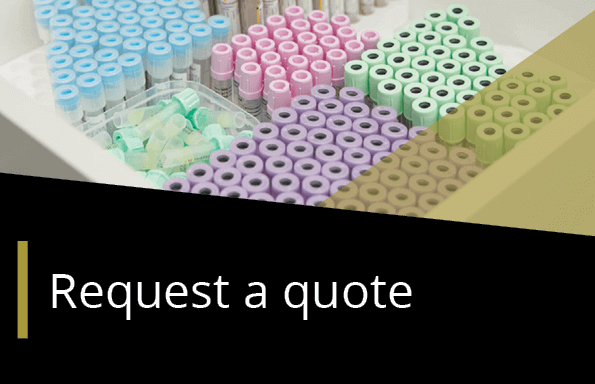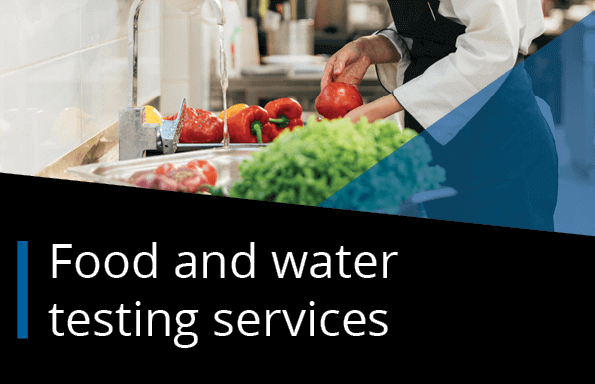Pharmaceutical Testing
If you are an Australian pharmaceutical and therapeutic goods manufacturer, distributor or retailer, the PathWest Pharmaceutical Testing Facility (PTF) can work with you to help ensure your products are safe and reliable for your customers or help you to ensure your quality processes are compliant.
As Western Australia's leading dedicated pharmaceutical testing facility, PathWest offers Therapeutic Goods Administration (TGA) licensed, state-of-the-art testing and consultancy services to help manufacturers ensure their products are safe for use in the Australian market.
Trusted by government, industry and manufacturers across Australia and globally, we provide professional, impartial and high-quality specialised testing services with rapid turnaround times. Our expert laboratory team is on hand to advise on testing and analytical solutions.
Get in touch with our team now or request a quote.
Pharmaceutical testing services available to you
PathWest can work with your organisation to tailor individual testing and consultative services including:
- Sterility testing
- Bioburden estimations on process waters and devices
- Microbial limits testing on pharmaceutical products
- Microbial limits testing of raw materials
- Process and report on environmental monitoring samples from manufacturing facilities
- Pyrogen testing of pharmaceuticals and devices
- Preservative efficacy testing
- Assistance with operator validations for manufacturing facilities.
Accreditations
We are proud to have held a TGA licence for over 25 years (TGA Licence: MI-2016-LI-09565-1) to perform microbial and endotoxin testing to compliance with the cGMP well and above minimum standards.
Results
Your results are available via fax or email.
Learn more about pharmaceutical testing
PathWest is a TGA cGMP licenced microbial and endotoxin testing service on sterile and non-sterile dosage forms (TGA Licence: MI-2016-LI-09565-1).
GMP stands for Good Manufacturing Process.
Our laboratory and pharmaceutical testing team is located at QEII Medical Centre, Nedlands. Your samples must be appropriately labelled and transported to our laboratory no later than 2pm Monday to Friday. Before sending a sample, please contact us to discuss your testing requirements or request a quote.
If a product is described as sterile, it must be shown to be free of all microorganisms. Sterility testing forms the basis of the microbiological quality control of pharmaceutical products manufactured under sterile conditions. It is a requirement for products not terminally sterilised in their final container to be tested for the presence of microorganisms.
Sterility testing is carried out within a Class A laminar flow hood which is situated within a Class B cleanroom. The testing environment is tightly controlled and precautions are taken to avoid contamination such that any microorganisms recovered are thought to have originated from the product in the test.
The product passes sterility testing if no microorganisms are recovered.
Testing specifications: Appendix XVI A, British Pharmacopoeia.
Sample: Determined by the manufacturer. We can test all types of samples including medical devices.
Number of samples required: The sampling schedule is specifically described in Table 2 of Appendix XVI A, British Pharmacopoeia. It is dependent on the batch size and product type.
Turnaround time for a result: 16 days.
Yes, PathWest does environmental monitoring.
An environmental control program should be capable of detecting an adverse drift in microbiological conditions in a timely manner that would allow for meaningful and effective corrective actions. It is the responsibility of the manufacturer to implement this program. There should be minimal risk of accidental microbial contamination of products from microorganisms within the manufacturing environment.
Microbial monitoring is carried out by the use of settle and rodac plates, air sampling and touch plates of operator's gloved hands.
Testing specifications: USP29, Chapter 1116.
Sample: The plates are collected by the manufacturer. Tryptone soya agar is the pharmaceutical media of choice. These can be purchased from commercial media manufacturers. In Perth, they can be purchased from the PathWest Media Manufacturing Facility.
Number of samples required: Determined by the manufacturer and is dependent on the size and type of facility.
Turnaround time for a result: 5 days.
Microbial limit testing is concerned with establishing the microbial quality of pharmaceutical products, from raw materials to the finished product.
Some form of microbiological control is necessary to ensure that neither the consumer nor the product is exposed to an unacceptable level of risk. Mechanisms of control involve the sampling of the raw material and the testing of part or the entire sample for the presence of microorganisms, with special reference to the presence of potential pathogenic species.
Acceptance of the product is based on the total aerobic microbial count present. The acceptable count is based on the specific use of the product.
Testing specifications: Therapeutic Goods Order 100 and Appendix XVI B and D, British Pharmacopoeia.
Sample: Determined by the manufacturer. We can test all types of samples - aqueous, creams, lotions, ointments, powders, disinfectants.
Number of samples required: Determined by the manufacturer. Dependent on batch size, sampling plan or conditions of manufacturer.
Turnaround time for a result: 5 to 10 days.
If a pharmaceutical preparation does not itself have adequate antimicrobial activity, then antimicrobial preservatives may be added to prevent proliferation or to limit microbial contamination, which during normal conditions of storage and use, could occur in a product and present a hazard to the patient or customer from infection and spoilage of the preparation.
The efficacy of the preservative may be enhanced or diminished by the product or affected by the container and closure used. The antimicrobial activity of the preparation is investigated over the claimed shelf-life to ensure that such activity has not been impaired by storage.
Preservative efficacy testing can also be used during product development as a guide to the effectiveness of the formulation being created.
Testing specifications: Appendix XVI C, British Pharmacopoeia.
Sample: Determined by the manufacturer. We can test all types of samples - aqueous, creams, lotions and ointments.
Number of samples required: 100g of product.
Turnaround time for a result: 35 days.
Bioburden testing is concerned with establishing the baseline microbial viable count of medical devices or products before sterilisation.
The viable counts together with a correction factor determine the bioburden estimate of the item. This degree of bioburden then determines the level of radiation required for sterilisation.
Testing specifications: ISO 11737-1: 2018
Sample: Tubing, bandages, swabs, receiving bottles, multiple line systems, tablets and manufactured biological substrates.
Number of samples required: Three samples of the device are provided by the manufacturer for testing.
Turnaround time for a result: 10 days.





